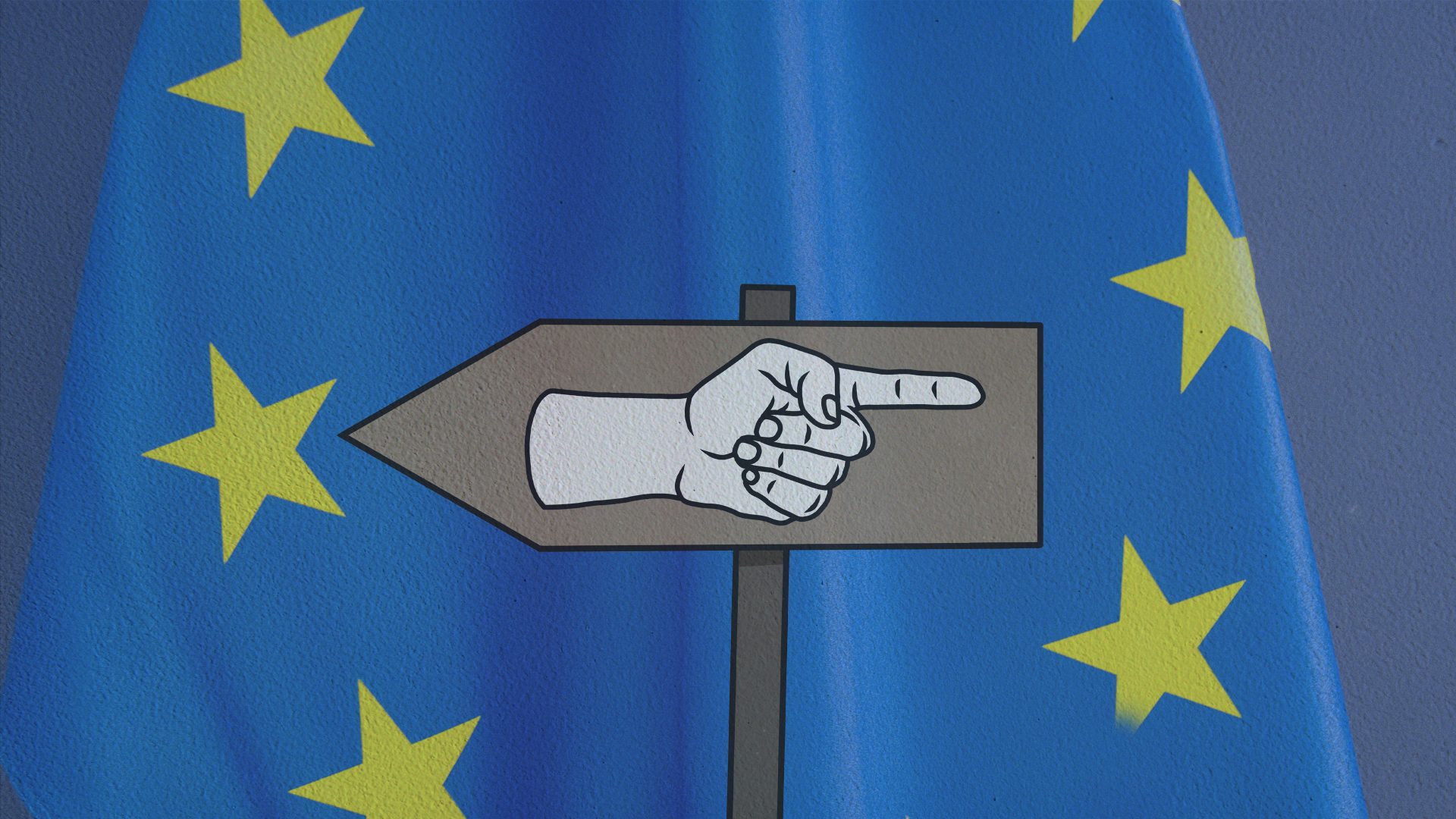As Brexit crawls to its 10th anniversary, the pervading attitude on the other side of the Channel is now one of indifference.
In the summer of 2016, after Britain’s vote to leave the EU, Marine Le Pen covered her social media pages with the UK flag – but when she decided she wanted to make a serious bid for power, that Brexit-themed imagery all had to go. All of her previous Nigel Farage-style hostility to the EU has also gone with it.
In order to be taken seriously, Le Pen realised that she had to drop all talk of quitting the euro, or of holding a referendum on EU membership. The same was true of Giorgia Meloni and most other anti-EU populist nationalists. Their eye was certainly caught by Brexit, but none of them has the slightest interest in following Britain out of Europe.
Dan Dalton is a former Conservative MEP who now spends time in Brussels advising firms on European politics. “It is rubbish that everyone in Europe is happy with Britain outside the EU,” he says. “Most would like to see the UK back in with its global savvy, its city and financial sector, and just adding a lot of weight to Europe.”
In London, there’s an increasingly optimistic buzz around the UK-EU Parliamentary Partnership Assembly. That group of MPs and peers is chaired by the Battersea Labour MP Marsha de Cordova, and it will meet with a delegation of MEPs chaired by the former Italian minister for Europe, Sandro Gozi, in the hope of beginning to unpick the Brexit knot. However, these EU membership talking shops don’t have an especially good record. The Turkey-EU Joint Parliamentary Committee was set up in 1965, and Turkey is still no nearer EU membership.
But whereas no Turkish leader has ever pretended that being outside the European Union was advantageous, huge swathes of Britain’s political and media class who argued for Brexit are yet to admit they were mistaken. They told the public that cutting links with the EU would unleash a new economic dynamism in Britain, and in the words of the Tory Brexit minister, David Davis, “there would be no downsides only, upsides.” None of those words have yet been publicly eaten.
There is as yet no minister, let alone the prime minister, who can bring him or herself to say that Brexit was a mistake. That is despite the fact that every opinion poll this year shows a majority of British voters agreeing that the 2016 vote was an error. In recent months there have been clear majorities for rejoining the EU. Only half of Tory voters now say Brexit was a good idea. But this definitive shift in public opinion finds no echo in the political class. Whenever they are asked about Europe, government ministers look as if they are suffering from a bad attack of piles.
“We understand Sir Keir Starmer’s caution,” says Giacomo Filibeck, the general secretary of the Party of European Socialists. “Since the Conservative Party went down the anti-EU road when Tony Blair became prime minister in 1997, the EU question has convulsed British politics. No one expects a full return and rejoin in the near future.”
One idea being discussed in Brussels is Britain joining the European Free Trade Association, along with other non-EU nations like Norway, Switzerland, Iceland and Liechtenstein. Turkey might also join, to form a trading block that would remove some of the barriers put up by Boris Johnson’s hard Brexit.
But again and again, the question of reciprocity comes to the fore. European leaders ask why they should make concessions. Britain already opens its doors to immigrants from India, Ghana, Pakistan and Nigeria, but refuses to allow Polish IT experts, Portuguese or Romanian nurses or Bulgarian agricultural workers into Britain. Why?
The Mail on Sunday claims that Keir Starmer has a secret plan to re-enter the EU and that he has created a “surrender squad of 100 civil servants” working to get the UK closer to Europe. Given that the British government consists of 24 ministerial departments, 20 non-ministerial departments, and 422 government agencies – a total of 465 departments – 100 extra civil servants won’t go far.
It remains to be seen whether the Daily Mail and Rupert Murdoch’s media empire can rekindle the half-truths and open lies about Europe that led to the 2016 vote. The anti-European propagandists like Johnson and Rees-Mogg are now discredited. Farage is approaching what would be considered retirement age in many jobs.
He is not yet in Donald Trump territory of semi-senile mumbling and mis-speaking, but 40 years of non-stop drinking and smoking takes its toll.
The anti-Europeans now face an uphill battle in that no one under 60 will believe anything they say.
There is not a single Labour, Lib-Dem, SNP, Green or SDLP MP who believes in Brexit. And it won’t be long before a young Tory MP – one who was barely in nappies when Boris Johnson was allowed by Max Hastings, editor of the Daily Telegraph in the 1990s, to turn Britain against Europe – will break ranks. That MP will finally point out the truth: that if the Tory Party ever wants to win power again, it must dump the likes of Johnson and start telling the truth about Europe. That MP will become famous overnight, and the Tories will ditch the policy that lost them the 2024 election.
That at least is one scenario, and it would cause the Labour government huge problems. But in the here and now, nothing can happen until Labour decides to talk sense on Europe. Continuing on this current course will only be a vote-loser.
Denis MacShane is the former Labour minister for Europe









